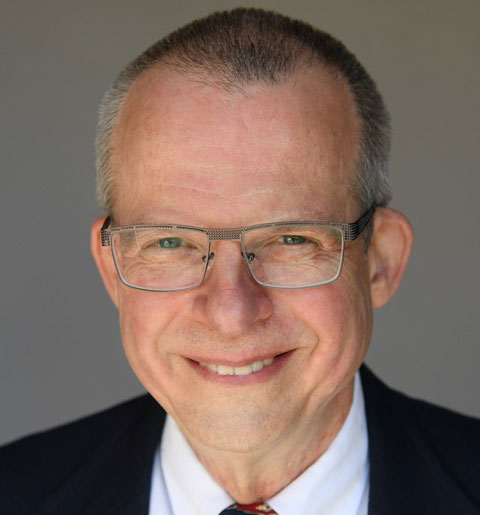Addiction Resources in Tacoma, Washington
One of the hardest parts of accepting the fact that you’re dealing with a substance use disorder is finding treatment. This process can be terrifying, but it’s not hopeless. With the right help, those in Tacoma, Washington struggling with substance use disorder can get the resources they need.
Substance use disorder is a growing problem in the United States, with rates of addiction and overdose increasing every year. More than 48 million Americans aged 12 or older reported misusing illicit drugs or alcohol in the past year. According to the Centers for Disease Control and Prevention (CDC), approximately 21 million individuals have a substance use disorder.
Substance use disorders can have a devastating impact on individuals, families, and communities. People with substance use disorders often suffer from physical and mental health problems as well as social consequences that can damage relationships between family members or friends. Substance abuse can also lead to financial difficulty, employment issues, and criminal activity.

Addiction in Washington State
In Washington State, addiction remains a major problem in 2022. According to the Substance Abuse and Mental Health Services Administration (SAMHSA), addiction rates have been steadily increasing across the state since 2017. Drug overdose deaths are at an all-time high, with opioid addiction being one of the biggest contributors. Other substances like alcohol and prescription drugs are also having a major impact on addiction in Washington State.
Additionally, addiction is taking its toll on communities throughout the state. Law enforcement agencies have reported an increase in addiction-related crime, as well as increased homelessness and poverty due to addiction. Mental health services are inadequate for many struggling with addiction and access to treatment is limited.
Washington state has seen an increase in addiction-related issues in recent years. In the past decade, there has been an approximately 75% increase in drug overdose deaths related to addiction. This is a worrying statistic that shows just how serious addiction can be for those living in Washington state. In addition, addiction-related hospitalizations have also seen a major increase, with an approximate 50% jump.
In terms of addiction to specific substances, Washington state has particularly high rates of addiction to opioids such as heroin and prescription painkillers. Recently, more than 1,400 people died from opioid addiction in the state. Moreover, addiction to alcohol and marijuana is also a major issue in the state, with an estimated 200,000 people suffering from addiction to both substances combined.
Addiction in Tacoma, Washington
Washington state has seen a dramatic rise in addiction rates over the past decade, with Tacoma being one of the most affected cities. According to the Washington State Department of Health, addiction rates have skyrocketed by 33.3%. In 2018 alone there were more than 4,000 admissions for addiction treatment across the state of Washington, with Tacoma accounting for 15.6% of those admissions.
As addiction rates have risen, so too has the availability of addiction treatment services in the Tacoma area. There are now a number of addiction treatment centers providing specialized care to individuals suffering from addiction and their families. These services include counseling, group therapy, detoxification programs, and medication-assisted addiction treatment.
At the same time, various initiatives have been put in place to help those battling addiction in Washington state. These include expanding access to medication-assisted addiction programs, increasing funding for mental health and addiction services, launching campaigns to raise awareness about addiction and stigma, and providing support for those ready to seek help or return to the community after having been in addiction treatment.
What Addiction Resources are there in Tacoma, Washington for Addiction?
There are plenty of addiction resources available in Tacoma, Washington. Some of these resources include the following:
- Inpatient residential treatment
- Outpatient treatment
- Medically assisted detox

Inpatient residential addiction treatment is a comprehensive addiction recovery program that takes place in an inpatient facility. This type of treatment allows individuals to stay at the facility for an extended period of time and receive around-the-clock support while they address their addiction.
During inpatient addiction treatment, individuals have access to evidence-based therapies, medical care, addiction education, and support services. This type of addiction treatment is often part of a larger addiction recovery plan that may include inpatient detoxification or outpatient addiction counseling.
In Washington state there are many addiction resources available to those seeking help for addiction. In particular, at Bayview Recovery, we provide comprehensive treatment and addiction resources for those struggling with substance use disorder.
Outpatient addiction treatment is an important resource for those struggling with addiction in Washington State. Outpatient addiction treatment can provide individuals with a range of recovery services and support, including individual counseling, group therapy, medication management, and relapse prevention education.
This type of addiction program typically does not require the person to live on-site; instead, they can attend addiction treatment sessions during the day or evening and then return home to continue their recovery journey. Outpatient addiction treatment is often more affordable than inpatient addiction programs, and individuals can typically continue with their work or school responsibilities while receiving addiction treatment services.
Washington State has a variety of outpatient addiction resources available for those seeking help with addiction, including addiction counselors, addiction treatment programs, addiction recovery groups, and relapse prevention education. Many of these addiction resources can be found in larger cities such as Seattle, Spokane, and Tacoma. These addiction resources are designed to help individuals better manage their addiction and find healthier coping strategies.
Medically assisted detox, also known as medically supervised detoxification or addiction treatment, is a form of addiction treatment that involves the use of medication to help an individual safely withdraw from drugs or alcohol.
The process typically begins with an initial assessment to determine which medications are appropriate for the individual’s addiction and individual needs. Medically assisted detox can be used to treat addiction to both legal and illegal substances, such as alcohol, opioids, benzodiazepines, stimulants and hallucinogens.
Why is it Important to Find Resources for Addiction?
Finding resources for addiction is important because it can help individuals learn more about their condition, understand the different treatment options that are available to them and learn how to cope with the challenges of living with an addiction. Additionally, connecting with others who have been affected by addiction can provide valuable emotional support. Learning from people who have experience overcoming and managing addiction can help individuals realize that they’re not alone.
It is important to find resources for addiction because it can be the first step toward recovery. Knowing more about substance abuse, how it works and what options are available for treatment can provide an individual with a better understanding of the process of recovery and give them hope for a sober future. Resources for addiction may include support groups, treatment centers or websites providing information about recovery and sober living.
What is Addiction?
Addiction is a chronic brain disorder characterized by compulsive drug seeking and use, despite harmful consequences. It is considered a brain disease because drugs change the brain—they change its structure and how it works. These brain changes can be long-lasting and can lead to many harmful, often self-destructive, behaviors.
Addiction is a complex condition, one that involves changes in the structure and functioning of the brain. It often involves compulsive drug use despite negative consequences and a negative effect on an individual’s physical and mental health, relationships, and ability to work effectively. Addiction occurs when people become dependent on drugs or alcohol to cope with life’s stressors. People with addiction often have difficulty controlling their drug or alcohol use and may go to extreme lengths to obtain the substance.
The exact cause of addiction is still unknown, but research suggests that a combination of biological, psychological, social, and environmental factors are involved. Biological risk factors include changes in brain circuits related to reward, stress, impulse control, and judgment. Psychological risk factors include mental health disorders such as depression, anxiety, and trauma.


Do I Have a Substance Use Disorder?
Substance use disorders can range from mild to severe. Determining if you have a substance use disorder requires an assessment by a qualified healthcare professional such as a physician, psychologist, or certified addiction counselor. Diagnosing a substance use disorder typically involves the following:
- A detailed medical and mental health history. This will include questions about your substance use and any associated symptoms.
- A physical exam to rule out other medical conditions that could be causing your symptoms.
- A thorough review of your lifestyle, including the type and amount of substance use, as well as any patterns or triggers that lead to more frequent use.
- Psychological tests or questionnaires may be used to evaluate your behavior and mood.
- Lab tests may also be ordered to measure levels of certain substances in your body.
Once the diagnosis is made, treatment can begin. This typically includes both counseling and medication, depending on the severity of the disorder. Treatment plans are tailored to each individual and may involve cognitive behavioral therapy (CBT), psychotherapy, or a combination of both. Medication may be prescribed to help manage symptoms, along with lifestyle changes such as exercise and healthy eating habits. In some cases, hospitalization may be necessary for more severe cases of substance use disorder.
We Can Help!
Our treatment center in Tacoma, Washington, can help you beat addiction. If you or a loved one are struggling with addiction and would like to find out more, you can contact us here.
“The staff at the center has been remarkable in their care for our loved one. Tuni was with us the whole way as we tried to get this person into treatment. They continue to assist us as the process continues. Great work!”
Ray O
“I have been trying to get sober the past 3 years and I have been to treatment 5 times. Bayview Recovery was my 6th time. They helped me get to 142 days sober! I was a handful hot mess when I got there but the team never gave up on me. They work with families and they truly care about them too. Bayview house’s are clean and comfortable and the staff is amazing. They plan for fun events weekly and they want you to have fun. If your looking for something different call them it will save your LIFE!”
Cindy J
“Bayview is dedicated to providing clients the healthiest environment to develop a solid foundation in their recovery. The therapists and medical team are devoted to ensure clients have the best individualized care. I highly recommend Bayview for anyone seeking a highly professional treatment program. The care and compassion given to clients is remarkable.”
Robin M
“This is a fantastic facility with outstanding staff. If you or a loved one is struggling this is a great program to start the journey of recovery and get life long skills and relationships to begin a new life!”
Garrett T
“Just picked up our daughter after 90 days at Bayview Recovery. Loved the staff and facility, do not know what the future holds ???????? but while at Bayview , always felt informed. Highly recommend, incredibly helpful especially at the very beginning when we were so helpless and needed help the most – God Bless.”
Rosie S
Dave Cundiff, MD, MPH is an experienced leader in the field of Substance Use Disorder treatment. He works with patients suffering from Substance Use Disorder to evaluate their medication needs and prescribe treatments accordingly. In addition, he regularly participates in all-staff debriefing sessions involving peers, nurses, and other prescribers. He also reviews and advises on policies, procedures, and techniques for treating substance use disorder.




